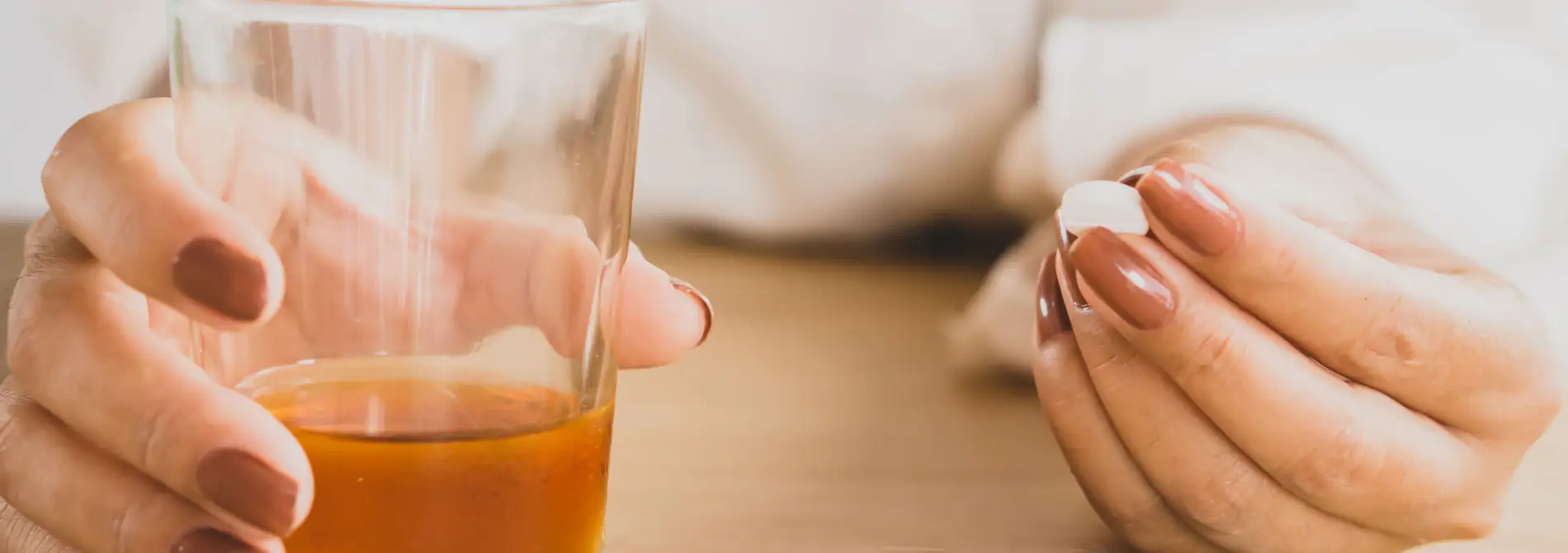Some of the most successful people in any field possess a kind of vision, a long-term way of thinking, yet they can still be plagued by short-term thinking at times. One example of short-term thinking is using any solution that’s not sustainable, such as the use of alcohol during especially stressful times to mitigate the symptoms of depression or anxiety while still on a prescribed antidepressant or an anti-anxiety medication. Today, let’s talk about how mixing medications and alcohol actually worsens depression and anxiety and how to recognize if you’ve been impacted already.
During this unprecedented time, one response to coping with anxiety or depression may involve mixing alcohol with prescription medication. Not only can it have lethal consequences, the combination of these substances can actually worsen depression and anxiety by altering the medication’s efficacy, creating more anxiety in between periods of drinking, and intensifying the side effects of the medication. If you know someone who is at risk due to this type of behavior, confidential treatment using evidence-based therapies is available.
If you or a loved one need help, call our admissions team today at 561-270-1753.Feelings of depression or anxiety are not failures.
It’s important to emphasize this point first. In a year where such much uncertainty has taken over personal health, economic well-being, the survival of businesses, and more, the pre-existing of depression or anxiety can be exacerbated by these situations. In some cases, the dramatic change in personal and professional circumstances are leading some people to first time diagnoses of depression or anxiety. These are all victories.
You may notice your prescription medication is wearing off before it’s time for the next dose.
If you’re taking a benzodiazepine for anxiety, for example, over time you’ll need higher amounts of the drug to achieve the same effect. Using more of the substance to achieve the same effect can speed up your use of the drug, so the times you take it become earlier and earlier. Also, you may notice its inability to reduce your anxiety begins prompting you to mix your prescription medication with some other substance, such as alcohol, in an attempt to control the anxiety.
Alcohol and benzodiazepines can be a deadly combination.
Mixing these two substances can have lethal consequences. One of the ways they collectively impact the body is affecting the respiratory system and causing the user to stop breathing. This makes even one incident of mixing a benzo and alcohol potentially fatal.
Alcohol provides a false sense of control over anxiety.
While alcohol is known to ease anxiety in social situations, it can mislead a user into thinking the anxiety is properly managed. That could start with one drink to calm the nerves and eventually lead to more drinks consumed at one time to achieve the same effect as one’s tolerance increases. The additional alcohol now consumed, and the withdrawal when it’s not, can contribute to more episodes of panic attacks or higher levels of anxiety in between drinking.
Alcohol can interfere with your medication’s effectiveness.
If you’re noticing the “need” to increase your dose while you’re drinking and taking your meds, it may be due to a change in efficacy of the drug. When alcohol interferes with the effectiveness of the medication, the feeling of depression or anxiety can linger, thus creating a cycle where controlling it with more frequent doses and drinks seems endless.
Alcohol can worsen the side effects of an antidepressant.
Headaches, nausea, trouble sleeping, dizziness, and weakness and fatigue are just some of the common side effects of using an antidepressant. Mixing that antidepressant with alcohol regularly can intensify these side effects to a point of being unmanageable or unbearable.
Routine alcohol use with anti-anxiety medication or antidepressants can be treated.
Before it becomes more harmful to your health—and even a major career risk—an exclusive, clinically-driven addiction treatment option is worth considering. Customized treatment plans from a world-class team of therapists, psychologists, and medical professionals using evidence-based therapies in a confidential setting can help you begin to create a sustainable recovery.
Headwaters is a well-known care provider offering a range of treatment programs targeting the recovery from substance use, mental health issues, and beyond. Our primary mission is to provide a clear path to a life of healing and restoration. We offer renowned clinical care for addiction and have the compassion and professional expertise to guide you toward lasting sobriety. For information on our programs, call us today: 561-270-1753.





